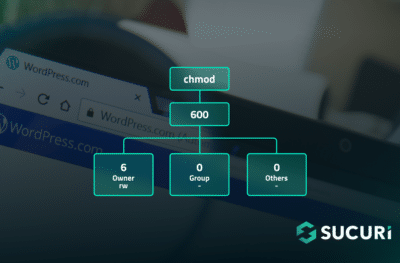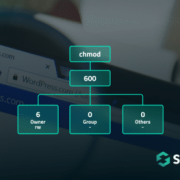Published on 03/10/2021 – Last Updated on 03/10/2021 by OTC
Posted by Moberstein
I’m completely fascinated by Google’s Discover Feed. Besides the fact that it serves highly-relevant content, it also seems beyond the reach of being gamed. In a way, it almost seems beyond the reach of pure SEO (which makes it downright tantalizing to me).
It all made me want to understand what makes the feed tick.
So I did what any sensible person would do. I spent the better part of two months running all sorts of queries in all sorts of different ways to see how it impacted my Discover Feed.
Here are my ramblings.
My approach to analyzing Google’s Discover Feed
Let me explain what I did and how I did it, to both give you a better understanding of this analysis and point out its gaping limitations.
For five days a week, and over the course of two months, I executed all sorts of user behavior aimed at influencing my Discover Feed.
I ran queries on specific topics on mobile, searched for other topics on desktop… clicked on results… didn’t click on results… went directly to sites and clicked… went directly to sites and didn’t click anything, etc.
In other words, I wanted to see how Google reacted to my various behaviors. I wanted to see if one behavior influenced what showed in my Discover Feed more than other behaviors.
To do this, I searched for things I would generally never search for, went to sites I would normally never visit, and limited my normal search behavior at times so as not to influence the feed.
For example, I hate celebrity news and gossip with a passion, so I went to people.com every day (outside of the weekends) and scrolled through the site without clicking a thing. I then recorded if related material (i.e. celebrity nonsense) ended up in my Discover Feed the next day.
I recorded all of my various “web behaviors” in the same way. I would execute a given behavior (e.g. search for things related to a specific topic on mobile, but without clicking any results) and record what happened in my Discover Feed as time went on.
Here’s a breakdown of the various behaviors I executed along with the topics associated with each behavior. (For the record, each behavior corresponds to a single topic or website so I could determine the impact of that behavior on my Discover Feed.)
Allow me to quickly elaborate on the behaviors above:
- These are all topics/sites that I am in no way interested or involved in (particularly self-help car repair).
- When I clicked a YouTube video, I watched the entire thing (I mean, I didn’t actually watch half the time, but Google doesn’t know that… or do they?)
- When I visited a site, I did scroll through the content and stay on the page for a bit.
- A search for a “segment of a topic already existing in Discover Feed” means that the overall topic was something that regularly appeared in my feed (in this case, NFL football and MLB baseball). However, the subtopics, in this case the Cowboys and Marlins, were topics I never specifically searched for and did not appear in my feed. Also, the data for these two categories only reflects one month of experimentation.
All of this points to various limitations.
Is it possible that Google sees a topic like entertainment news as more “Discover-worthy” than sewing? It is.
Is it possible that going to a site like Fandango during a pandemic (when many theaters were closed) influenced Google’s decision to include or exclude things related to the topic matter dealt with by the site? It is.
What if I didn’t skip the weekends and executed the above every single day. Would that have made a difference? I don’t know.
I’m not trying to portray any of the data I’ll present as being overly-conclusive. This is merely what I did, what I found, and what it all made me think.
Let’s have at it then.
How user behavior impacted my Discover Feed
Before I dive into the “data”, I want to point out that the heart of my observations isn’t found in the data itself, but in some of the things I noticed in my Discover Feed along the way.
More than that, this data is far from conclusive or concrete, and in most ways speaks to my unique user-profile. That said, let’s have a look at the data, because there just may be some general takeaways.
As I mentioned, I wanted to see the impact of the various online behaviors on my Discover Feed. That is, how frequently did Google insert content related to the topics associated with each specific behavior into my feed?
For all the times I went to japantimes.co.jp how often was there content in my feed related to Japanese news? For all the times I searched for and watched YouTube videos on lawn care, how often did Google show me such content in Discover?
Survey says:

Here are some of the most intruding highlights reflected in the graph above:
- Watching YouTube videos on mobile had no impact on my feed whatsoever (though it certainly did on what YouTube ads I was served).
- Watching YouTube videos on desktop has little impact (in fact, any insertion of “sewing” into my feed was only as a topic card which contained no URL).
- Searching on Google alone, without clicking a result, was ineffective.
- Visiting a desktop site and clicking around was very effective at filling my feed with “cooking” content, however the same was not true on mobile.

Watching YouTube videos (desktop) about sewing was only successful in getting Google to include the topic in its “Discover more” cards.
I want to emphasize that when I say things like “YouTube mobile watches had no impact”, I don’t mean that as a general statement. Rather, such a statement is only aligned with the way I engaged with YouTube (one video watch per day). Clearly, and as is obvious, if you watch a large number of YouTube videos around one topic in a short time, Discover will pick this up.
I did, in fact, test this.
I gave my kids free rein at various moments to take my phone and watch a large number of videos related to specific topics (surprisingly, they were happy to oblige and to watch vast amounts of YouTube).
I have twin 9-year-old boys. One watched an obscene number of YouTube videos and executed an insane number of searches related to airplanes and flight simulators. I am still awaiting the day where my feed stops showing cards related to this topic. Here’s my search history to prove it:

The other little fellow watched videos about the weather and animal behavior that results from it for a few hours straight (hey, it was during the height of quarantine). That same day, this is what I saw in my feed:

You don’t need me to tell you that if Google thinks you’re going gaga over a specific topic, it will throw said topic into your Discover Feed posthaste.
My goal in all of this was not to see what is the quickest way to get Google to update the topics it shows in your Discover Feed. The point in my methodology was to see if there was one type of behavior that Google seemed to take more seriously than another vis-a-vis inserting new topics into my Discover Feed.
To that, Google did react differently to my various behaviors.
That doesn’t mean I can make many conclusions based on the above data. For example, Google clearly saw my going to foodnetwork.com and clicking on an article each day as a strong signal that “cooking” deserves to be in my Discover Feed.

Google was apt to think of my behavior of visiting foodnetwork.com and clicking an article each day as an endorsement for wanting “cooking” content in my Discover Feed.
At the same time, Google completely ignored that behavior on mobile. Each day I went to japantimes.co.jp and scrolled through an article. Yet, not once did Google include anything even remotely related to Japanese news in my feed.
I suspect that the topic here was too far removed from overall search behavior. So while it was reasonable for Google to assume I wanted cooking-related material in my feed, the same did not hold true for topics related to Japan.
I think this is the same reason why the topic associated with my visiting a site on desktop without clicking anything made it into my feed. The topic here was celebrity news, and I imagine that Google has profiled this topic as being one that is highly-relevant to Discover. So much so that Google tested including it in my feed at various points.

Despite never clicking on an article when visiting people.com each day, Google still flirted with showing celebrity news content in my Discover Feed.
That said, there is some reason to believe that desktop behavior has more of an impact than mobile user behavior.
The case for desktop Discover Feed dominance
About a month into my little experiment I wondered what would happen if I started searching for and clicking on things that were segments of topics that already appeared in my feed.
Deciding on these segments was quite easy. My feed is constantly filled with material on baseball and American football. Thus, I decided to search for and click on two teams I have no interest in. This way, while the topic overall was already in my feed, I would be able to see the impact of my behavior.
Specifically, on desktop I searched for things related to the Dallas Cowboys, clicking on a search result each time. Similarly, I did the same for the Miami Marlins baseball team on mobile.
Again, in both cases, content specific to these teams had yet to appear in my feed.
Here are the results of this activity:

Over a 30-day period, I found 10 instances of content related to the Dallas Cowboys in my feed and 6 instances of content about the Miami Marlins.
Again, just as in the first set of data I presented, a disparity between mobile and desktop exists.
Is this a general rule? Is this based on my particular profile? I don’t know. It’s just an interesting point that should be investigated further.
I will say that I doubt the content itself played a role. If anything, there should have been more results on mobile about the Marlins, as I was very much caught up in the World Series that was taking place at the time of my activity.
What does this data actually mean?
There are so many factors at play, that using any of the data above is a bit “hard.” Yes, I think there are some trends or indicators within it. However, that’s not really what I want you to take away from all of this. (Also, is it such a crime to consume data solely because it’s interesting to see some of what’s going on?)
What do I want you to take away, then?
As part of my data analysis (if you’ll even call it that) I looked at how long it took for a behavior to result in Discover Feed inclusion. Surprisingly, the numbers were pretty consistent:

Discounting the 31 behavior instances around my “Search Desktop No Click” activity (e.g. searching for all things related to “fishing” but clicking on nothing) to impact my feed, Google picked up on what I was doing fairly quickly.
Generally speaking, it took less than 10 behaviors for Google to think it should update the topics shown in my feed.
That’s really the point. Despite the normal things I search for and engage with both regularly and heavily (things like SEO, for example) Google took this “lighter” yet consistent behavior as a signal to update my feed.
Google was very aware of what I was doing and acted on it pretty quickly all things considered. In the case of “food/cooking” content, as shown earlier, Google took my behavior very seriously and consistently showed such content in my feed.
Forget which behavior on which device produced more cards in my feed. The fact that it varied at all is telling. It shows Google is looking at the type of engagement and where it happens in the context of your overall profile.
Personally, I think if you (yes, you, the person reading this) did this experiment, you would get different results. Maybe some of the trends might align, but I would imagine that would be it.
And now for the really interesting part of all this.
Diving into what was and what wasn’t in my Discover Feed
As I’ve mentioned, the data is interesting in some of the possible trends it alludes to and in that it shows how closely Google is watching your behavior. However, the most interesting facets of this little project of mine came from seeing what Google was and was not showing day-in and day-out.
Is Google profiling users utilizing the same account?
The first month of this study coincided with a lockdown due to COVID-19. That meant my kids were home, all day, for a month. It also meant they watched a lot of YouTube. From Wild Kratts to Woody Woodpecker, my kids consumed a heap of cartoons and they did so using my Google account (so I could see what they were watching).
Wouldn’t you know, a funny thing happened. There was no “cartoon” content in my Discover Feed. I checked my feed religiously that month and not once did I notice a card about a cartoon.
Isn’t that odd?
Not if Google is profiling my account according to the devices being used or even according to the content being consumed. All signs point to Google being well aware that the content my kids were watching was not being consumed by the one using Discover (me).
This isn’t a stretch at all. The same happens in my YouTube feed all the time. While my desktop feed is filled to the brim with Fireman Sam, the YouTube app on my phone is a mixture of news and sports (I don’t “SEO” on YouTube) as my kids generally don’t watch their “programs” on my phone.
The URLs I visited were absent from Discover
There was one other thing missing from my Discover Feed and this one has enormous implications.
URLs.
Virtually none of the URLs I visited during my two-month experiment popped up in my Discover Feed!
I visited the Food Network’s website some 40 times, each time clicking and reading (pretending to read to be fair) an article or recipe. By the time I was nearing the end of my experiment Discover was showing me some sorts of food/cooking related content every day.
Through all of that, not once did Google show me a URL from the Food Network! Do you like apples? Well, how do you like them apples? (Cooked slowly with a hint of cinnamon.)
This was the general trend for each type of behavior that produced new topics in my feed. I visited a few websites about car repair, Google threw some cards about the topic in my Feed… none of which were sites I visited.
The only time I saw the same site I visited that appeared in my Discover Feed was ESPN for some of the sports queries I ran and people.com which I visited every day. However, I think that was entirely accidental as both sites are top sources of content in their spaces.
Yes, some sites I visit regularly do appear in my feed in general. For example, there were some local news sites that I visited multiple times a day for the better part of a month so as to track COVID-19 in my area. I freely admit it was a compulsion. One that Google picked up on.
In other words, it took a heck of a lot for Google to think I wanted that specific site or sites in my feed. Moreover, it would seem that Google doesn’t want to simply show content from the URLs you visit unless the signal otherwise is immense.
This leads me to my next question…
Is Discover really an SEO issue?
What can you do to optimize for Google Discover? It’s almost an absurd question. I visited the same site every day and Google still didn’t include its URL in my feed. (Again, I am aware that certain behaviors will trigger a specific URL, my point is that Google is not as apt to do so as you might think.) It all points to a certain lack of control. It all points to Google specifically not wanting to pigeon-hole the content it shows in Discover.
In other words, you can’t create content specifically for Discover. There’s no such concept. There’s no such control. There is no set of standardized “ranking signals” that you can try to optimize for.
Optimizing your images to make sure they’re high-quality or ensuring they’re at least 1,200 pixels wide and so forth isn’t really “optimizing” for Discover. It’s merely making yourself eligible to get into the ballpark. There is no standardized path to actually get on the field.
The entire idea of Discover is to offer content that’s specifically relevant to one user and all of their various idiosyncrasies. The notion of “optimizing” for something like that almost doesn’t compute.
Like with optimizing your images for Discover, all you can really do is position yourself.
And how does one position themselves for inclusion into the Discover Feed?
One of the sites that kept popping up in my feed was dallascowboys.com. This makes sense as I was searching for things related to the Dallas Cowboys and clicking on all sorts of results as a consequence. However, in my “travels” I specifically did not visit dallascowboys.com. Yet, once Google saw I was interested in the Cowboys, it was one of the first sites I was served with.
You don’t need to be a rocket scientist to see why. What other site is more relevant and more authoritative than the official site of the franchise?
If you want your site to be included in Discover, you need to be incredibly relevant and authoritative on whatever it is your site deals with.
That means investing time and resources into creating unique and substantial content. It means crafting an entire strategy around creating topical identity. After all, the idea is to get Google to understand that your site deals with a given topic, deals with it in-depth, and deals with it often (i.e., the topic is closely related to who you are as a site).
That sounds a heck of a lot more like “content marketing” than pure SEO, at least it does to me.
A cross-discipline marketing mind meld
Discover, to me, is the poster child for the merging of pure content creation and SEO. It speaks to the idea of needing a more abstract understanding of what a sound content strategy is, in order to be effective in the “Google-verse.”
It’s perhaps a different sort of motion than what you might typically find in the world of pure SEO. As opposed to diving into the minute details (be it a specific technical problem or a specific aspect of content optimization), Discover urges us to take a more holistic approach, to take a step back.
The way Discover is constructed advocates for a broader approach based on a meta-analysis of how a site is perceived by Google and what can be done to create a stronger profile. It’s almost the perfect blend of content, marketing, and an understanding of how Google works (SEO).
Fascinating.
Sign up for The Moz Top 10, a semimonthly mailer updating you on the top ten hottest pieces of SEO news, tips, and rad links uncovered by the Moz team. Think of it as your exclusive digest of stuff you don’t have time to hunt down but want to read!
![]()












Comments